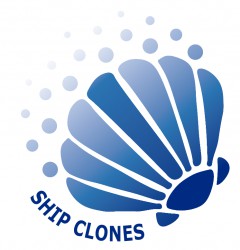
Transmissible cancers are passed between individuals through the transfer of living cancer cells. In nature, there are only three types of transmissible cancer, affecting dogs, Tasmanian devils and marine bivalve molluscs. In the former two mammals, transmission occurs during mating, whereas in molluscs it is possible that cells colonise new hosts through ocean currents or human activity. Funded by the Marie Skłodowska-Curie Actions programme, the Ship Clones project aims to study the biology of transmissible cancer and identify related biomarkers. Since transmissible cancer constitutes a model for understanding cancer metastasis, project results extend beyond marine ecosystems.
Objective
Ship Clones: Characterization and search for biomarker of marine transmissible cancers Clonally transmissible cancers are cell clones that are transmitted between individuals via the transfer of living cancer cells. There are only three known types of naturally occurring clonally transmissible cancers, one of which is a disseminated neoplasia (DN) found in marine bivalves. DN is a leukemia-like cancer characterized by the proliferation of hypertrophied cells. In later stages of the disease, these cells spread throughout all tissues destroying their normal architecture and causing the death of their host organism. A polyphyletic origin of the DN has been detected in the common cockle Cerastoderma edule. DN has appeared on at least six different occasions and the six clones currently known coexist in cockle populations of the European Atlantic coast. In the present proposal high resolution lipidomics and proteomics will be used to screen for clonal biomarkers of DN and help to better understand the biological systems of transmissible cancers. Marine transmissible cancers are interesting biological models to better understand cancer transmissibility and metastasis. Marine clones likely ship using ocean currents to colonize new hosts in different regions. It is likely that they may also be unintentionally introduced by the action of man in disease-free regions. Hence, these cancers represent a potential threat for marine ecosystems, as they negatively impact keystone species (bivalves), that also have important socio-economic value for fisheries. As such, it is paramount to successfully identify, monitor and characterize the prevalence of clonal DN in marine bivalves, before any successful prevention and mitigation actions can be applied.